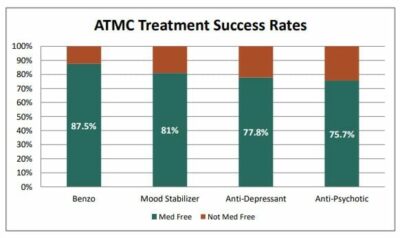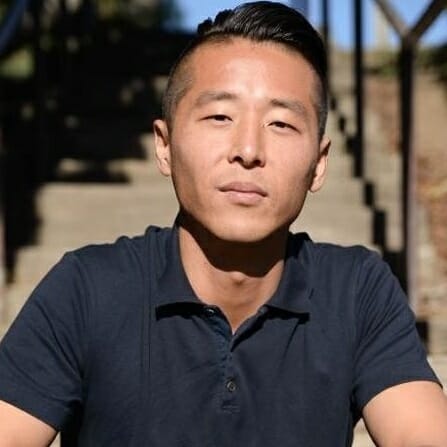Last Updated on September 13, 2022 by
Alternative to Meds Editorial Team
Medically Reviewed by Dr Samuel Lee MD
Table of Contents:
We collect data from our entire graduate population so that we can continue to grow and improve Alternative to Meds Center reviews. It is important for us to understand what is working, and what is not so that we can better serve our population and the world. By measuring this long-term success we can understand our true effectiveness. We are the only facility or organization that we are aware of that has compared holistic mental health against psychiatric drugging using such a deeply subjective clinical study … and followed the results long-term. It is simply revolutionary.
We performed a 4-year-long outcome study on 103 former residents. We asked 20 different subjective measures on a scale of 1-10 including things like anxiety, sleep, psychosis, and depression. These measures were taken while on medications during the first week of the program. The participants were then again tested after week eight. The participants were again tested at a minimum of six months and up to 4 years after treatment.
Measuring Success in Real Terms
Success was measured as a combination of remaining off of the medication and having the subjective symptoms either stay the same or improve. And, in most cases, they were drastically improved. Again, we measured these elements of success long-term while the individuals were back to living their lives.
Workable Strategies for Tapering Multiple Medications
The philosophy of ATMC is to eliminate the hardest drug first. These are the benzodiazepines and antipsychotics. In this way, we are taking on the heavy lifting as a priority. The benzo percent success is probably the most revealing. Most people at ATMC are slated to come off of benzodiazepines.
They may leave on lesser drugs that were part of their composite upon entry simply due to the time it would take to stabilize a fragile person and also get them off of multiple and sometimes many multiple medications.
Often times, a practitioner will “reduce the med count” by eliminating the easy medications leaving the hardest for last. We have found that this method can paint a person into a corner. The lesser medications might be providing a measure of support to endure the withdrawal manifestations of more serious drugs. And then getting off the more serious drug may be next to impossible because of the more severe impact of the withdrawal without any buffer. So, therefore, the medication-free results from antidepressants and mood stabilizers might be somewhat lower simply because other more difficult drugs were the primary focus.
The success rates, considering long-term use are unprecedented and exceeded our initial expectations.
Surprising Success with Tapering Antipsychotics
Antipsychotics, which were our lowest marker, saw particularly surprising success. This differs from tapering from benzodiazepines, where we actively seek to have zero medication left upon exit. However, those who have been taking antipsychotics for over 5 years, particularly with certain dispositions, may instead be targeted for the lowest possible dose. Then, the patient will go home and see how well they do in a less controlled environment.
The aim is to achieve a stable condition in that environment for 3 months or more before continuing further, as a matter of safety.
Alternative to Meds Center Complaints
Typically, the subjective scores from entry versus immediately exiting the program demonstrated a large improvement. This was despite the fact that in all cases, medications were being reduced, and patients were enduring withdrawals. The main Alternative to Meds Center reviews score complaint was increased fear upon exiting the program, over and above entry levels.
The complaints were further isolated to illuminate that losing the ATMC support setting and returning to their home environment and all of the challenges that may come with it without the residential level of support was scary. Since there is no large body like the 12 step model attending to ongoing support within the community, to address this, we have developed and are continuing to develop a virtual aftercare program. In aftercare, participants can call in during a live interview weekly with the founder Lyle Murphy or the medical team. During these calls, the person is encouraged to address any questions and challenges as part of an ongoing educational offering. The educational component is designed to help further long-term outcome success as well as alleviate fear.
Alternative to Meds Center Deaths
No Alternative to Meds Center-related deaths were reported during the time of the 4-year-long study related to mental health tragedies such as suicide, overdose, or drug-induced fatalities.
Some cases of cancer, several heart disease incidents, a slip and fall, and other deaths not associated with mental health, occurred post-treatment and before the conclusion of the study.
Alternative to Meds Center Reviews Backed by Evidence
We required that the task of measuring our clients’ success rates must be long-term, and must use consistent test-retest protocols on the group of individuals participating in the study. In these ways, the testing and retesting results have provided reliable statistical evidence. Alternative to Meds Center graduate reviews demonstrated a higher than expected level of success for our clients.









